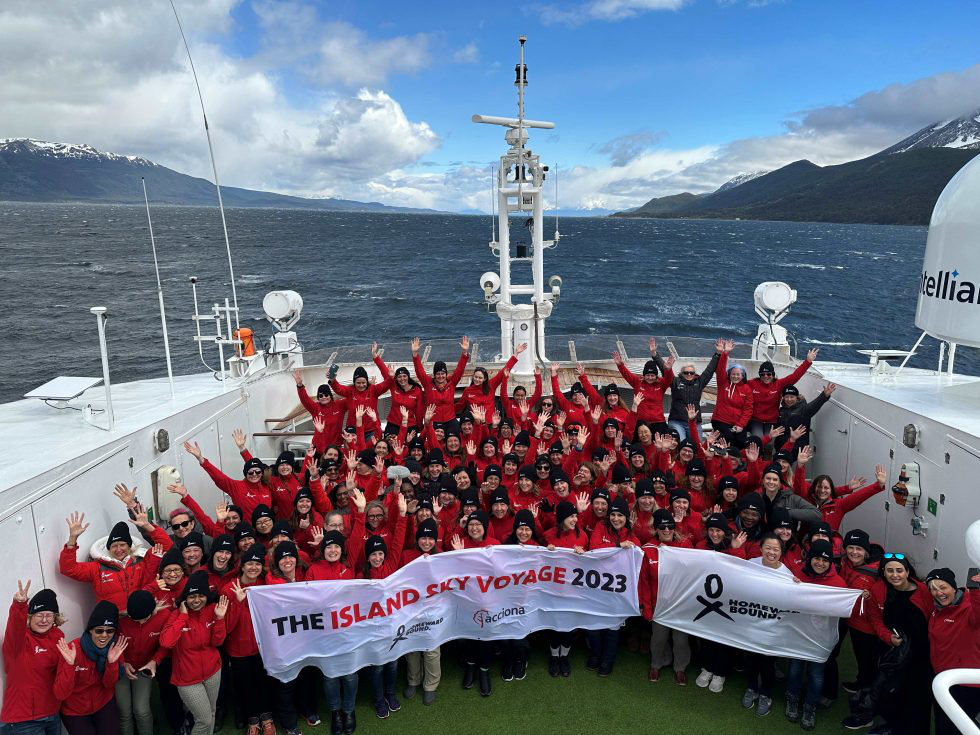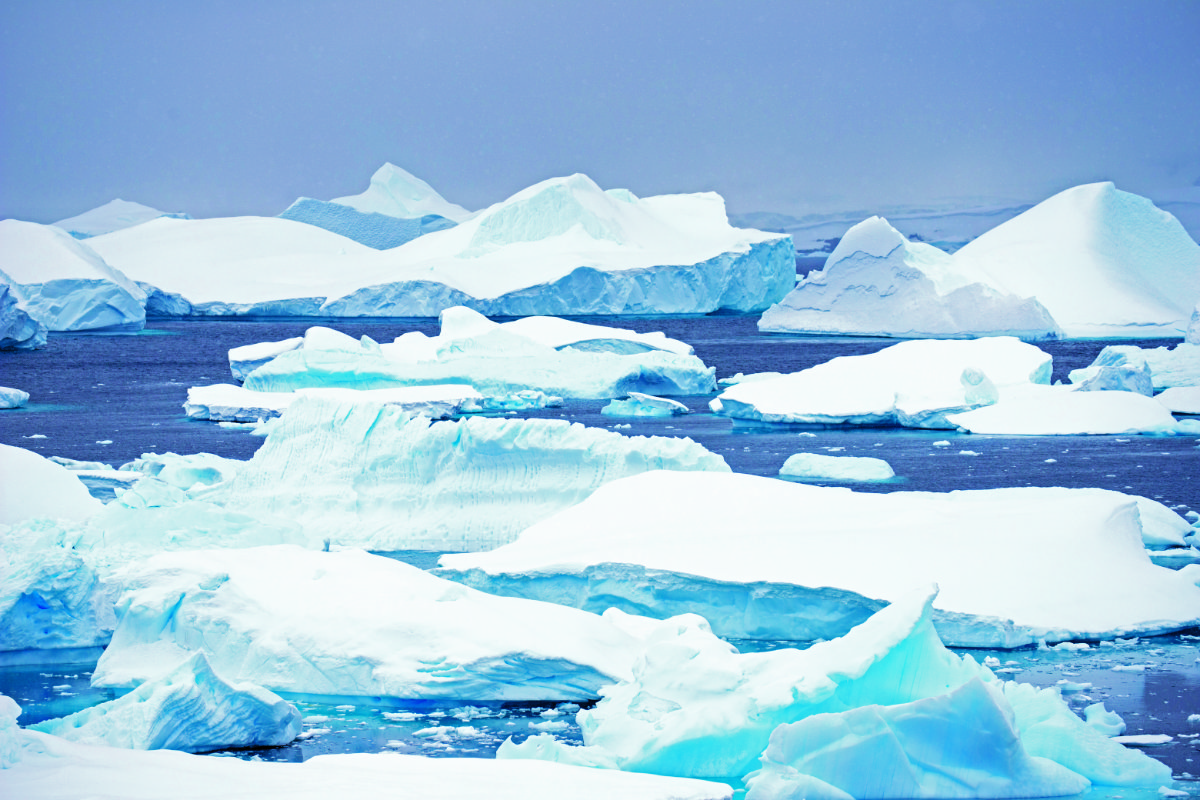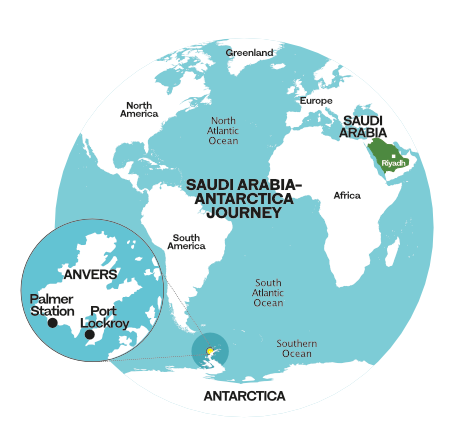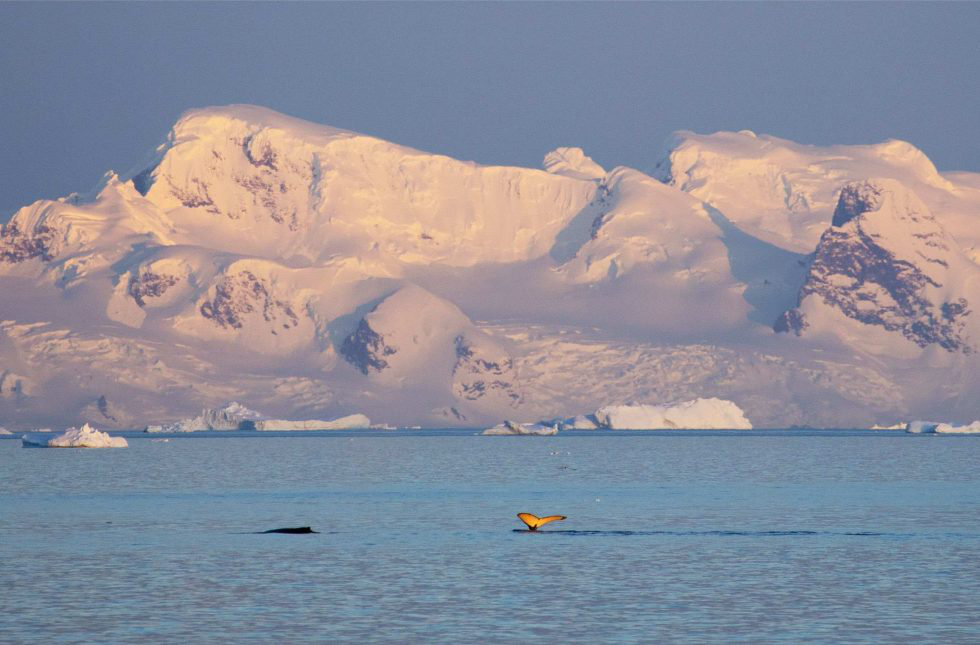- The princess joined an expedition in November to the remotest parts of Antarctica led by Australian NGO Homeward Bound
- She joined the expedition to raise awareness about climate action, sustainability, and the need for ‘a peace pact with nature’
RIYADH: Princess Abeer bint Saud bin Farhan Al-Saud recently became the first person from Saudi Arabia and the wider Gulf region to go on a research expedition to the remotest parts of the Antarctic continent.
In November, the princess was among 80 people selected from a pool of 1,800 applicants from 45 nations who joined the expedition led by Homeward Bound, an Australian organization that promotes women’s leadership in STEMM (science, technology, engineering, mathematics, and medicine).
Princess Abeer told Arab News: “The whole purpose of me joining this expedition was to raise awareness about climate action, environmental sustainability, and making a peace pact with nature and biodiversity.”

Also on the expedition were astronomers, oceanographers, glaciologists, mathematicians, marine biologists, and renewable energy engineers, who collaborated on various projects some of which were part of the UN Climate Change Conference (COP28), held in Dubai in November and December.
The princess said: “As a group, a few of us collaborated on multiple projects combining science, art, and policy and advocating at the UN by drafting reports and preparing our talks and findings for our participation at COP28.”
Princess Abeer is an international development professional with culture and heritage, peacebuilding, multilateralism, and NGO expertise, who has worked for several UN agencies.
She currently chairs the Sustainable Development Association (Talga) which aims to localize the UN Sustainable Development Goals in alignment with Vision 2030.
The princess noted that she was passionate about dedicating her life to projects that helped preserve endangered species, land, and the planet.
She is also an artist, inspired by her surroundings and what she described as her “cosmic desert” adventures in Saudi Arabia, where she produces works on canvas utilizing natural materials.
Before setting off for Antarctica, Princess Abeer pointed out that she would channel her ancestral heritage.
“I will draw on my roots as a woman from the desert and as a sailor, looking to the heavens to guide me.
“The Southern Cross has led me to many answers and many more questions, just like the North Star has led wanderers through the desert for countless generations,” she added.
The Bedouin who traversed Arabia’s vast deserts over the millennia relied on the stars.
November’s expedition was not all plain sailing. An unexpected storm struck the team’s ship as it navigated the Drake Passage, one of the world’s choppiest sea routes located between South America’s Cape Horn and the South Shetland Islands of Antarctica.

The princess said: “We had a very challenging 48 hours on the Drake Passage. My expedition mates lay on their bunks. Others used dark humor to console their anxiety by playing the ‘Titanic’ soundtrack on the old piano on board in the open area lounge.
“A few others were brave and calm, enjoying their time knowing that the storm would pass.”
While the experience was no doubt frightening, she added that she felt humbled, both by the power of nature and the skill of the ship’s crew who brought them safely through the towering waves to calmer seas.
“Witnessing and experiencing the majesty of nature’s fury is the art of humble exploration. I think it requires so much mental agility, gentle wisdom, and humor to overcome any storm, rogue waves, or any hardship in your life,” she added.

When the team arrived in Antarctica, Princess Abeer noted that it felt like she had been transported to another world, similar to “Alice in Wonderland.”
She said: “It felt like being in an immersive and multi-sensory natural museum of raw and untouched beauty. You can hear the sound of silence. Antarctica is the icebergs and glaciers gazing at you.”
Although the expedition took place during the Southern Hemisphere’s summer season, it was vital that participants wore the appropriate gear to withstand the cold, plus polarized sunglasses to protect their eyes from the sun’s harsh ultraviolet rays.
But to work in such inhospitable conditions, the princess pointed out that participants required inner strength.

“In isolated polar regions, just like hibernating animals live off their fat, as polar explorers we sought to ignite our spirits — with sea crafts like bunting,” she added.
Princess Abeer and the rest of the team slept aboard their ship, anchored off the Antarctic coast, but each day used Zodiacs — heavy-duty inflatable boats — to commute to their research stations and to conduct field research.
While studying the impact of climate change on the Antarctic’s weather, wildlife, and geography, the princess was shocked to see the massive icebergs breaking into the ocean and the record number of invasive species drawn to the continent by its warming climate.
